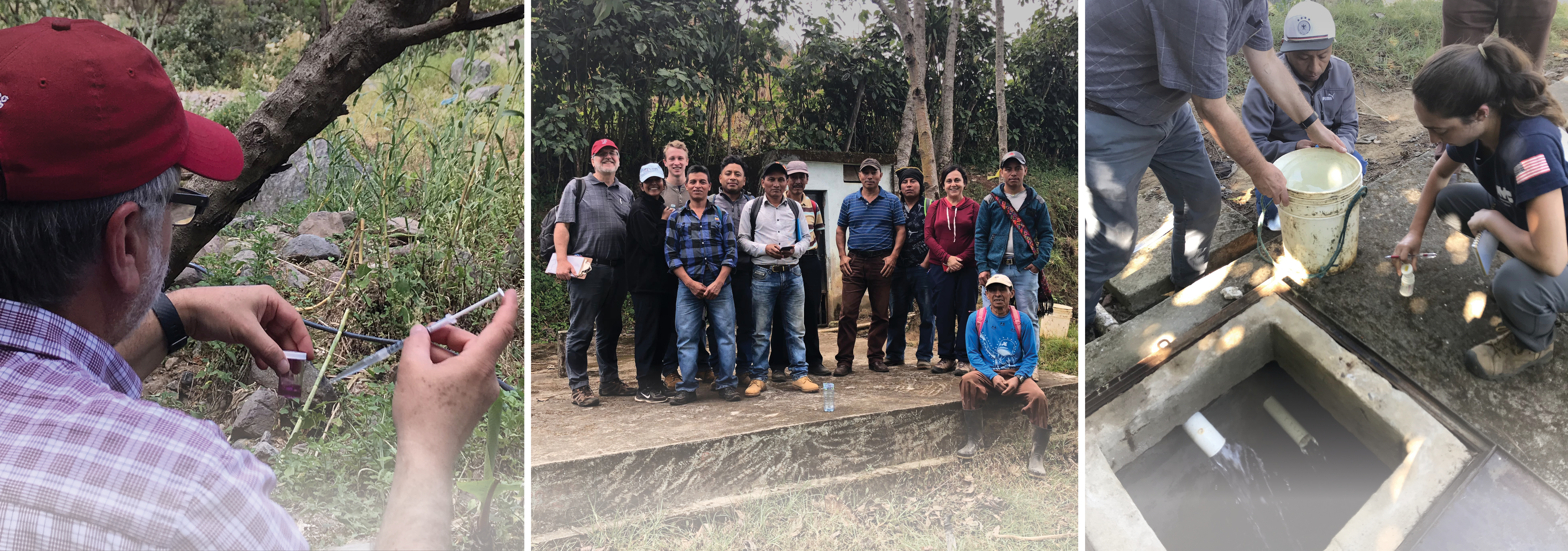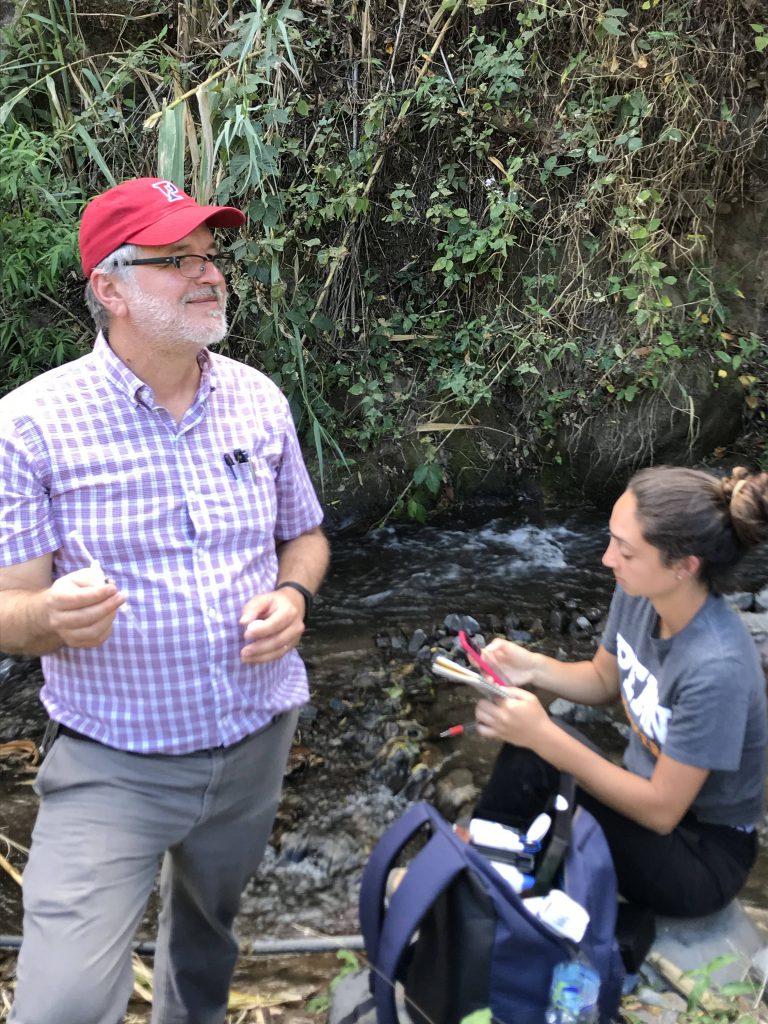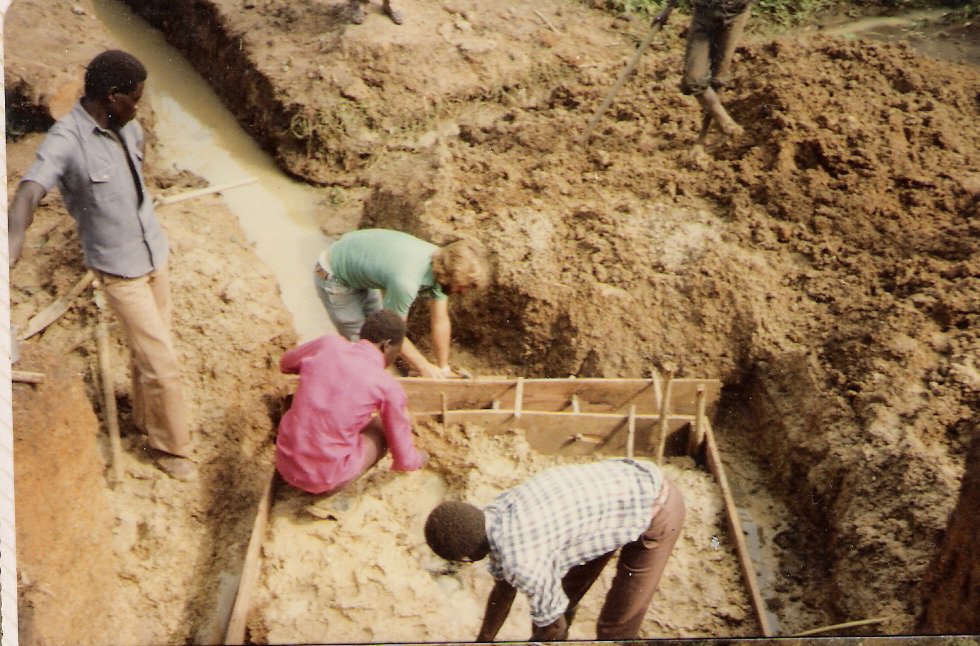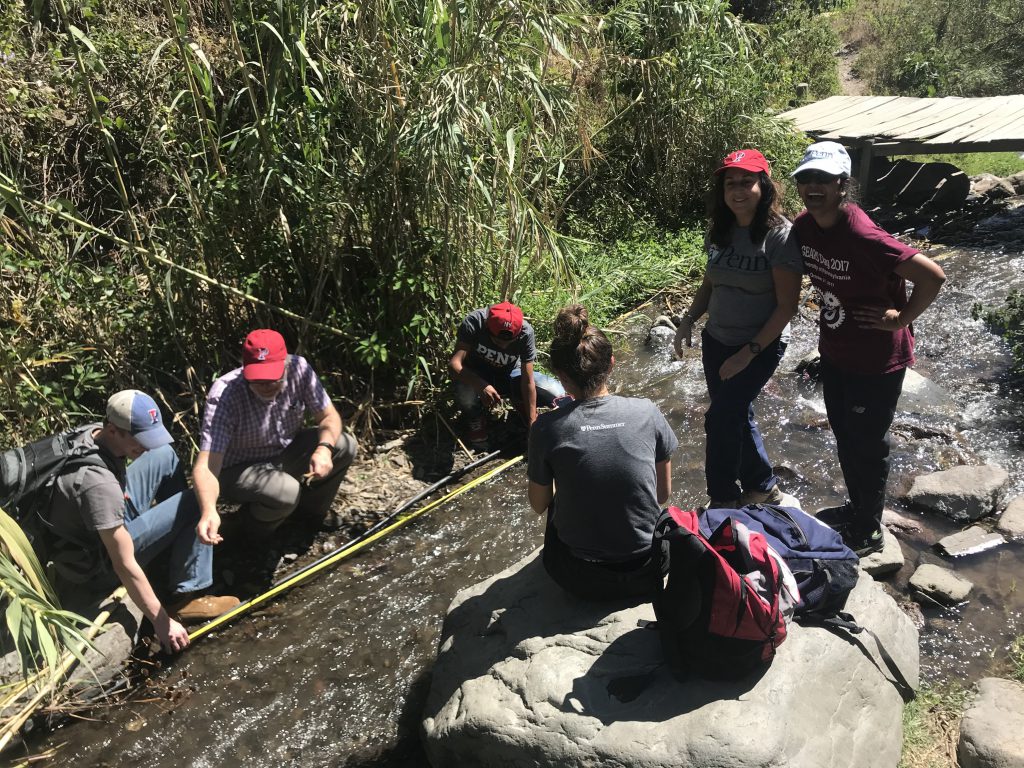
Tony Sauder, PE, PG is a Senior Engineer and Hydrogeologist at Pennoni and teaches Hydrology at Penn. He also serves as a professional mentor to the Penn Engineers without Borders’ (EWB) water and sanitation projects in Honduras, Guatemala and Cameroon. His experience includes 10 years of working overseas with projects involving water supply and construction in Chad, Sudan, Honduras, Dominican Republic, Cameroon and Belize. We asked Tony to tell us what inspired him to be an engineer and how he is using his expertise to provide service to communities around the world. 
From as early as I can remember I was building little dams in the rain and being scolded by grown-ups to come inside so I wouldn’t get sick. Whenever I could find a piece of pipe and Portland cement, I would make a more permanent structure in my favorite gully. As I grew up in in Honduras, my water bug became one and the same with my travel bug. The travel bug made me think I wanted to be an aeronautical engineer for a while.
As an engineering student at Drexel University, my first co-op included a trip to the Dominican Republic (DR) to help rebuild after a hurricane. It took several months to restore electricity and piped water, but there was an irrigation canal that was fed by gravity from a dam more than an hour’s drive upstream. I bathed in the irrigation canal and saw the wonderful vegetables grown with its water. I decided then I wanted to be a water engineer.
Right out of school, I led a group of my peers on a service learning trip to the DR and Haiti and had the opportunity to advise on a water diversion using gabions to divert stream water into a small irrigation canal. A few months later I was beginning a 3-year volunteer service assignment with Mennonite Central Committee (MCC) in South Sudan, motivated by the water and travel bug (with some humanitarian and faith underpinning) to work on water projects where it was needed most.  We quickly learned that dams and water diversions were not what people needed most; since many communities did not have access to surface water. Groundwater was the most reliable and safest source of water. In low lying areas hand-dug, large diameter, shallow wells provided the most sustainable community water supply. Where there were natural springs among the hills, they could be protected with a wall made with Portland cement and a pipe, reminiscent of my childhood projects.
We quickly learned that dams and water diversions were not what people needed most; since many communities did not have access to surface water. Groundwater was the most reliable and safest source of water. In low lying areas hand-dug, large diameter, shallow wells provided the most sustainable community water supply. Where there were natural springs among the hills, they could be protected with a wall made with Portland cement and a pipe, reminiscent of my childhood projects.
I returned from Africa and found a job at Pennoni where I gravitated towards water, in particular water supply projects involving wells. Exploring for groundwater sources, trying to decipher the mysteries of the sub-surface sparked my interest in a way I hadn’t expected. How could anything be more fun than dams and managing surface water flows? I got my Professional Engineer license (PE), and worked on water distribution systems, often supplied by groundwater.
My travel bug soon grabbed a hold of my water bug and my wife and I went to Africa to serve again with MCC in the semi-arid part of Chad. The only time water flowed here was in the wet season following a storm. So once again, hand-dug wells were the norm. There was a need for small dams in the seasonal water courses to retain water for the dry season, because of water scarcity. Villagers would use their ox-carts to bring clayey soils and maneuver large boulders into place. Then we would cap the structure and spillway with a thin layer of concrete, a much larger (and more sophisticated) version of what I did as a child.
I came back to Drexel for a dual master’s degree in Civil Engineering and Engineering Geology with a concentration in hydrogeology concentration. I wanted to figure out groundwater, now focusing as much on cleaning up groundwater as in finding good wells for a water supply. With my degrees in hand, Pennoni took me back once again.

After five years back at Pennoni, including environmental work in Mexico, the travel/water bug got a hold on me again. I went with my family, which now included my two sons, to work with MCC in southern Honduras. Three years and many community projects later, Pennoni welcomed me back in 2005 for a third time specializing in water and hydrogeology. There was one caveat, to keep my hybrid water/travel bug in check, Pennoni agreed that I could have the flexibility of teaching and staying engaged with international water projects…thus began my long-term engagement with the University of Pennsylvania chapter of Engineers without Borders. I have been able to combine my international development passion with my love of teaching while helping communities in Honduras, Cameroon and Guatemala with sustainable projects in water and sanitation. We are currently working with the community of Panyebar in Guatemala to upgrade their water system. The 4000 residents get their water for a few hours every 3 days as the system operators divert scarce water to each sector from the storage tank. We will assist the municipality is designing a spring collection and pumping system to supply additional water.
Work is hard, but I am grateful to be living some of my childhood dreams. At Pennoni, I work on complex problems like addressing emerging contaminants in groundwater, while testing new wells to supplement public water supplies. At Penn I get to teach young engineers and scientists how to sustainably manage and design water resource systems, all while traveling a little to help improve the quality of life for others.